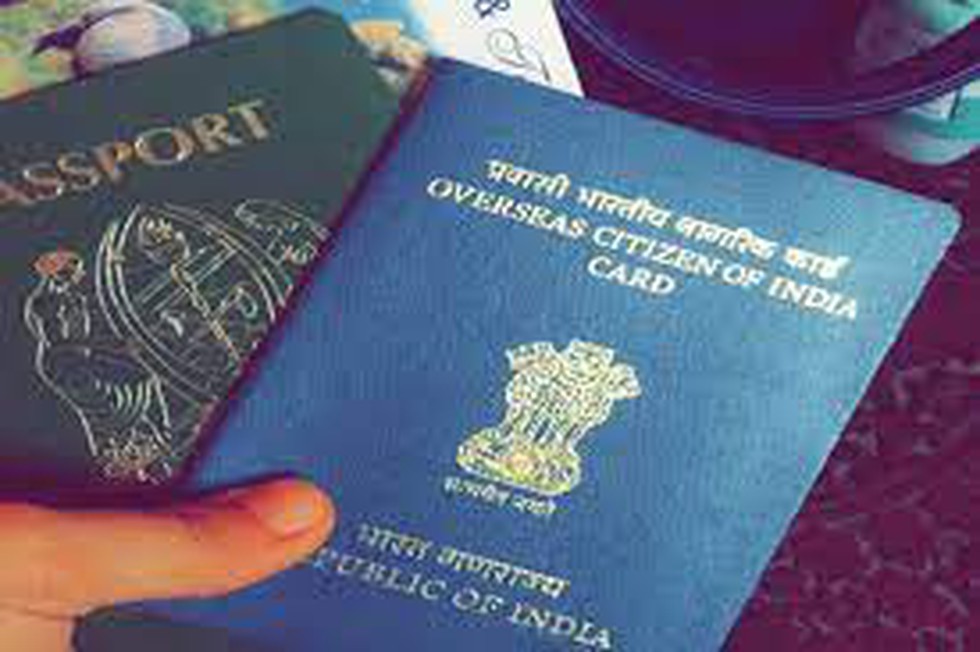In response to recent concerns from Overseas Citizen of India (OCI) card holders regarding their classification as “foreigners,” the Ministry of External Affairs clarified that there have been no changes to the OCI rules.
Ministry of External Affairs’ Statement
On September 28, the Ministry of External Affairs stated that the provisions of a gazette notification from 2021 remain in force. The Consulate General of India in New York also confirmed on social media that “no new change has been introduced in the recent past for OCI card holders.”
Overview of OCI Privileges
The OCI scheme was introduced in August 2005 to register Persons of Indian Origin (PIOs) who were citizens of India on January 26, 1950, or were eligible to become citizens of India on that date. Home Minister LK Advani, while presenting the legislation, indicated that the goal was to provide dual citizenship to the Indian diaspora.
Key Privileges of OCI Card Holders
- Visa Access: OCI card holders receive a multiple-entry, multi-purpose lifelong visa for visiting India.
- Exemption from Registration: They are exempt from registering with local police authorities for any length of stay in the country.
Current Statistics
As of 2023, there are over 45 lakh registered OCI card holders from 129 countries. The leading countries include:
- United States: 16.8 lakh
- United Kingdom: 9.34 lakh
- Australia: 4.94 lakh
- Canada: 4.18 lakh
Parity with Non-Resident Indians (NRIs)
Initially, OCI card holders enjoyed general parity with NRIs concerning access to economic, financial, and educational facilities, except for acquiring agricultural or plantation properties.
Recent Amendments to OCI Rules
On March 4, 2021, the Ministry of Home Affairs issued a gazette notification amending rules regarding OCI card holders, which continue to apply today. These amendments introduced several restrictions, including:
- Permissions for Visits: OCI card holders must seek permission to visit protected areas in India.
- Special Permits for Activities: They are required to secure permits for specific activities such as research, missionary work, and journalism, as well as for visiting protected or restricted areas.
Economic and Financial Rights
The 2021 notification placed OCI card holders at par with “foreign nationals” concerning economic, financial, and educational rights under the Foreign Exchange Management Act (FEMA), reversing their previous status akin to NRIs.
Historical Context of OCI Regulations
The 2021 notification superseded earlier regulations, including:
- April 11, 2005: Established multiple-entry lifelong visas, exemption from FRRO registration, and parity with NRIs.
- January 6, 2007: Introduced provisions for inter-country adoption, equal airfare rates, and entry fees for wildlife parks.
- January 2009: Further parity with NRIs regarding monument entry fees and eligibility for professional examinations.
Eligibility Criteria
To be eligible for an OCI card:
- Applicants cannot have parents or grandparents who were citizens of Pakistan or Bangladesh.
- Spouses of Indian citizens or OCI card holders can apply if their marriage has been registered and lasted for at least two years.
- Foreign military personnel, either active or retired, are ineligible for OCI.
Restrictions on OCI Card Holders
OCI card holders are not entitled to:
- Vote or hold positions in legislative assemblies or Parliament.
- Serve in Indian constitutional posts (e.g., President, Vice President, Supreme Court Judge).
- Normally hold government employment.
Multiple-Choice Questions (MCQs):
- What was the main concern of OCI card holders recently?
- A) Changes to the visa rules
- B) Being reclassified as “foreigners”
- C) Changes to the application process
- D) Issues with bank accounts
Answer: B) Being reclassified as “foreigners”
- When was the OCI scheme introduced?
- A) January 1, 2000
- B) August 2005
- C) March 2021
- D) December 2010
Answer: B) August 2005
- Which country has the highest number of OCI card holders?
- A) Canada
- B) Australia
- C) United Kingdom
- D) United States
Answer: D) United States
- Which of the following activities requires special permission for OCI card holders?
- A) Visiting family in India
- B) Undertaking research
- C) Attending weddings
- D) Sightseeing
Answer: B) Undertaking research
- OCI card holders are not entitled to:
- A) Multiple-entry lifelong visas
- B) Vote in Indian elections
- C) Visit protected areas with permission
- D) Register with local police for long stays
Answer: B) Vote in Indian elections
